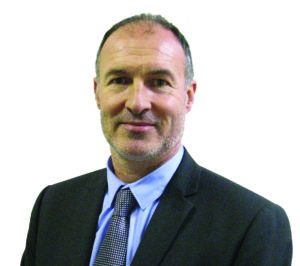
Kevin Paterson
Kevin Paterson is an internationally experienced, main board, interim and permanent COO and Transformational Change Leader.
Having driven large, complex transformations for organisations ranging from Universal Music and Vodafone Group through to Costa Coffee and Dixons Carphone, Kevin specialises in enhancing business performance and competitive advantage whilst rationalising costs and improving the customer experience.
As organisations the world over consider their customer proposition and focus on creating robust and resilient new operating models, Kevin shares with Barracuda Search his observations on the effectiveness of transformation programmes that he sees taking place in the market today.
The COVID pandemic has impacted business in a number of ways; some obvious, others more subtle. I’ve begun to notice something best described as “a risk hiding behind an apparent benefit”.
I believe Transformation programmes are currently being delivered more efficiently but also less effectively. CEOs and CFOs are initially happy because these programmes are both on time and within budget, with all KPIs showing green, but are later disappointed because they don’t realise the benefits promised in the business case.
I develop and deliver large scale transformational change programmes and over the last 9 months I’ve noticed this trend, both from my own experience and through conversations with Board-level Executives within my network. It’s a complex problem but I think there are two aspects to it which have their roots in the necessity for remote working and the amount of focus CEO’s and senior execs are dedicating to maintaining business as usual, when the business environment is anything but usual.
The first aspect is best described as “Are we heading in the right direction?” Simply put, getting from A to B more efficiently isn’t useful if B isn’t the place you need to get to. Most organisations understand their current state. Many agree on why they need to transform. Fewer can clearly articulate their desired future state – even though this is the vital step for any successful transformation. As CEOs and execs are forced to spend more time reacting to COVID-related disruption, they have less time to dedicate to what is a difficult task in the best of times, i.e. defining point B.
The second aspect is “informational osmosis”. All good programmes monitor and manage risk, making mid-course corrections in reaction to changes in circumstance and priorities. What’s often misunderstood is the role informal conversations play in identifying and mitigating problems before they actually become problems. Remote working enables tasks to be delivered with fewer distractions, however, it also strips away the hundreds of little interactions which happen in the course of the business day; the chats by the coffee machine, the ad hoc conversations at the end of a meeting, the informal temperature checks, and so on. As a result, the amount of actionable intelligence within a programme is reduced and there is little or no ‘live and pragmatic’ adaptation. As the time between realising there is a problem and feeling its consequences reduces, so does the programme’s ability to avoid or mitigate the risk.
The good news is there are a number of effective ways of dealing with this new, and hopefully temporary, situation. The following isn’t intended as a definitive list but rather they’re things I’ve used successfully and, hopefully, will work for you too.
I would love to hear from any Transformation Programme Sponsors who have observed a similar situation developing and have either implemented corrective actions to address the problem or are concerned as to how to ensure the original business case benefits are secured and delivered.
Written by Kevin Paterson, COO & Transformation Director
November 2020